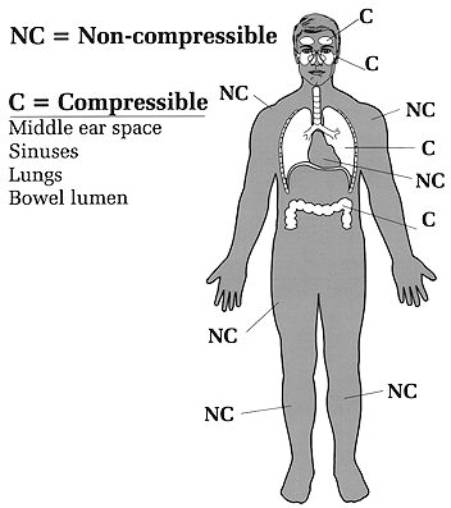
The Effects of Boyle's Law on Divers
There are 2 types of areas in the body when discussing diving and Boyle's Law:
1- Compressible :
These are areas in the body that contain some air i.e. the lungs, middle ears, sinuses nasal passages, interior of hollow organs and any other air pockets that may not be known of (Tooth Cavity).
2- Non-Compressible:
Such organs are bone, muscle, blood and solid organs such as the kidneys, heart and liver are all non-compressible and therefore are not affected by the water pressure
However, the compressible areas of the body do not behave according to Boyle's Law. The lungs are protected by the rib cage, only part of the middle ears are exposed to the water etc...

Although Boyle's Law is still applicable to a SCUBA Diver, the consequences are different because SCUBA Divers breathe compressed air under water. First the amount of air in the compressible areas in a diver increases as the water pressure increases. Then the volume of the compressible areas remains constant throughout the dive. At any depth, although the ambient pressure is increasing, the volume in any compressible space remains constant because the gas density is increased.